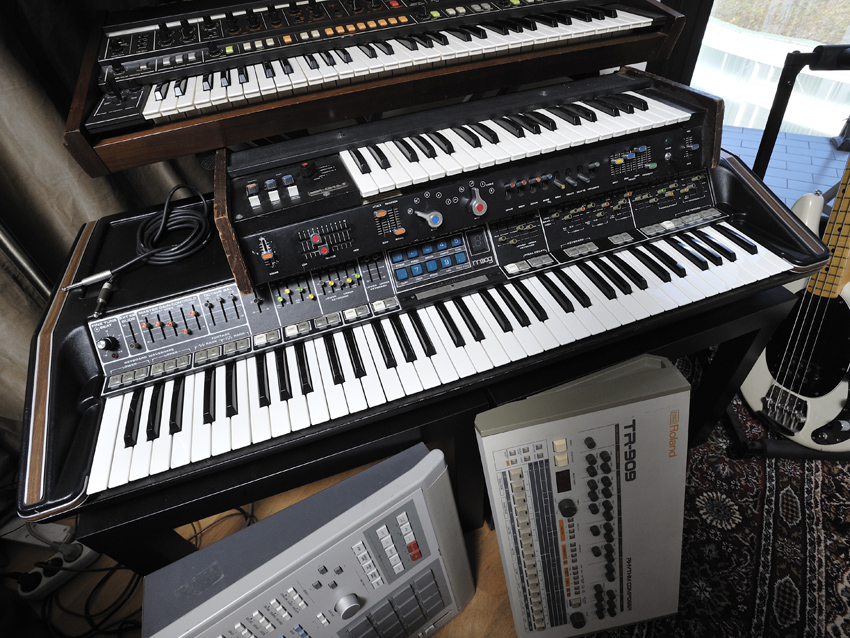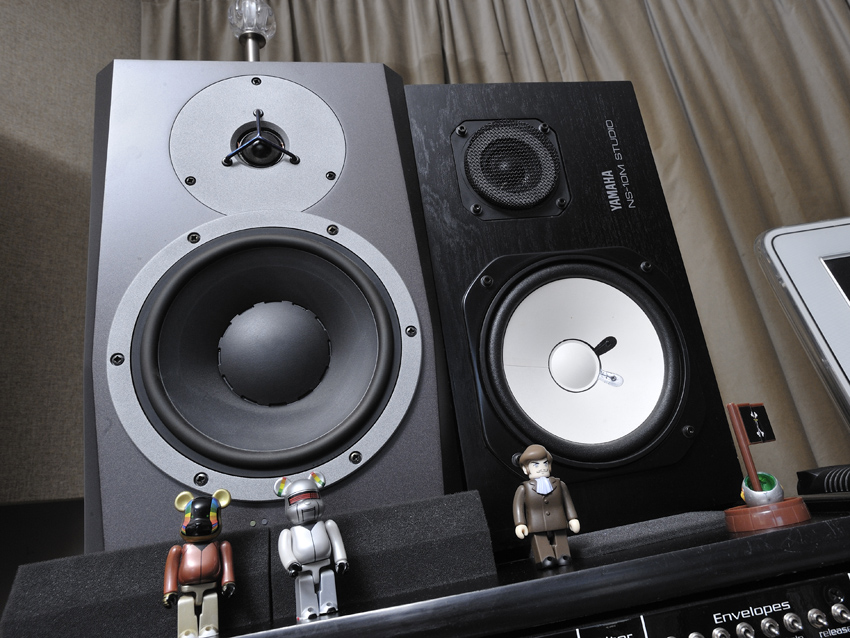In pictures: Fred Falke's synth-heavy home studio
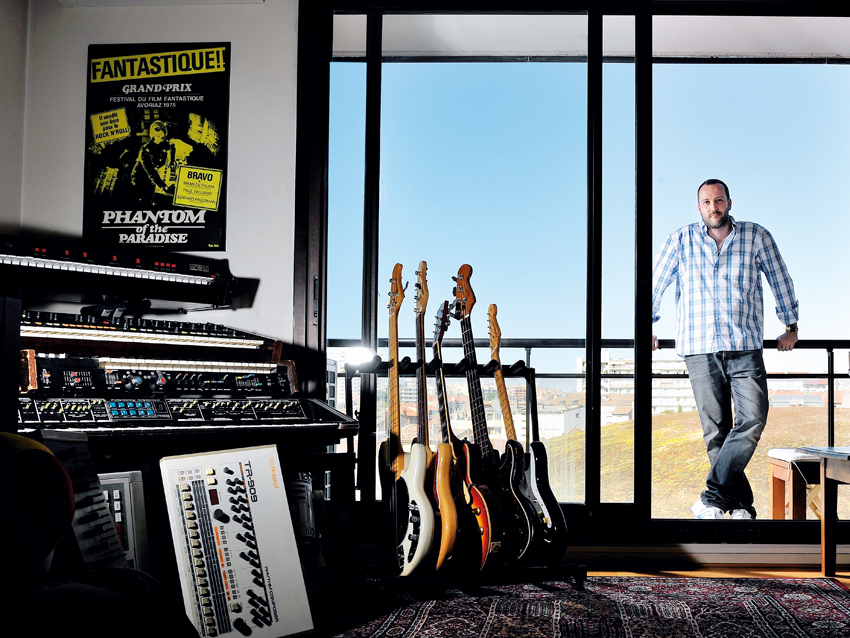
Welcome
Having started his career as a bass player, Fred Falke is now a producer, songwriter and remixer who’s worked with everyone from Alan Braxe to UK hit makers Xenomania.
Future Music recently headed to Toulouse in the south of France to catch up with him in his sunny apartment studio. Check out the September issue (FM243) for the full tour, including a video on the DVD.
NEXT: Yamaha CS-80
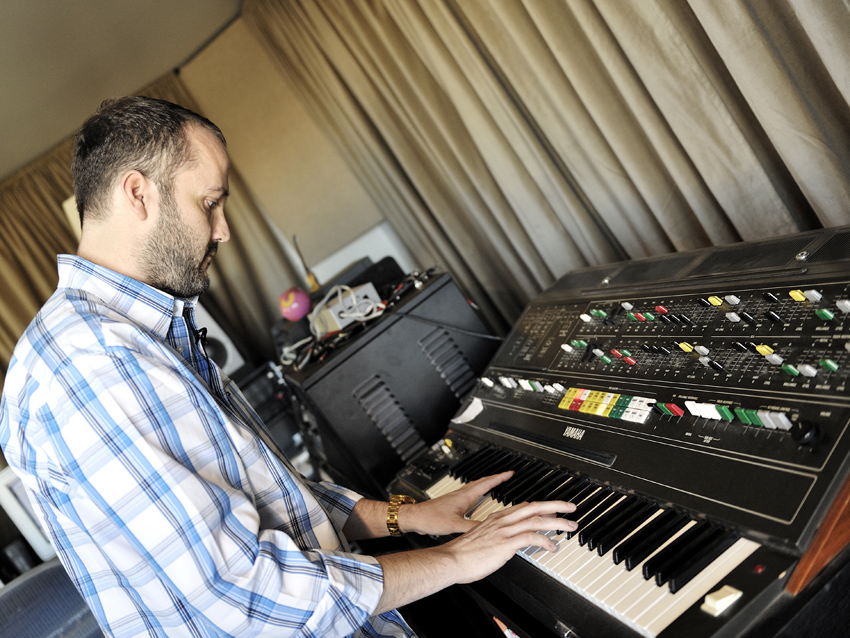
Yamaha CS-80
When it comes to synths, Fred’s pride and joy is his Yamaha CS-80, which he describes as the “holy grail” of such instruments.
“The controls and sound are so inspiring and the synth almost talks to you and just gives you the sound you want,” says Fred. “I’ll sometimes stand in front of it for an hour just recording ideas to a backing track.”
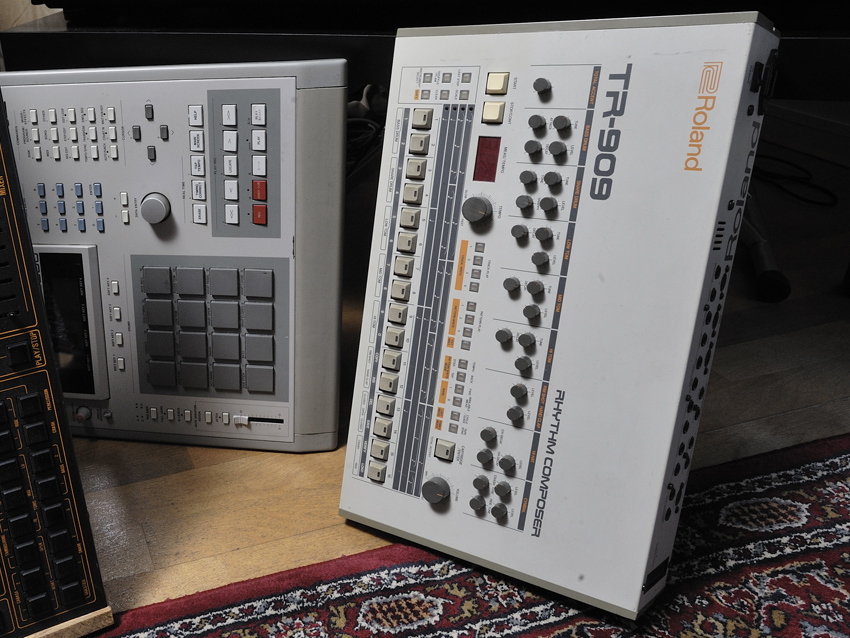
Roland TR-909
Fred believes that this classic drum machine (pictured right) is indispensable for producers of his ilk.
“I bought the 606 as my first drum machine, but when I started to really get into production I got the 909,” he confirms. “It’s just the sound of house music. I sold one before but bought another later on because of the ride cymbal alone; the tuning of the ride just makes it perfect.”
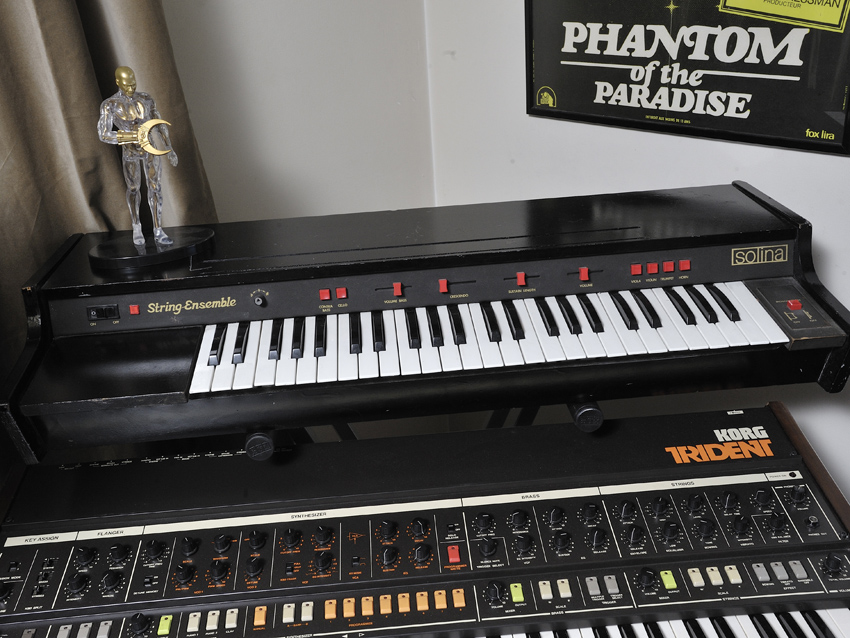
ARP Solina String Ensemble
This vintage string machine (top) harks back to the disco era of the late ‘70s. “The Solina is a classic; as far as I remember I fell in love with the sound of it from Herbie Hancock records initially,” explains Fred.
“I do wonder why there’s an option to turn the modulation off, though, because without it on it sounds like an awful trumpet sound.”
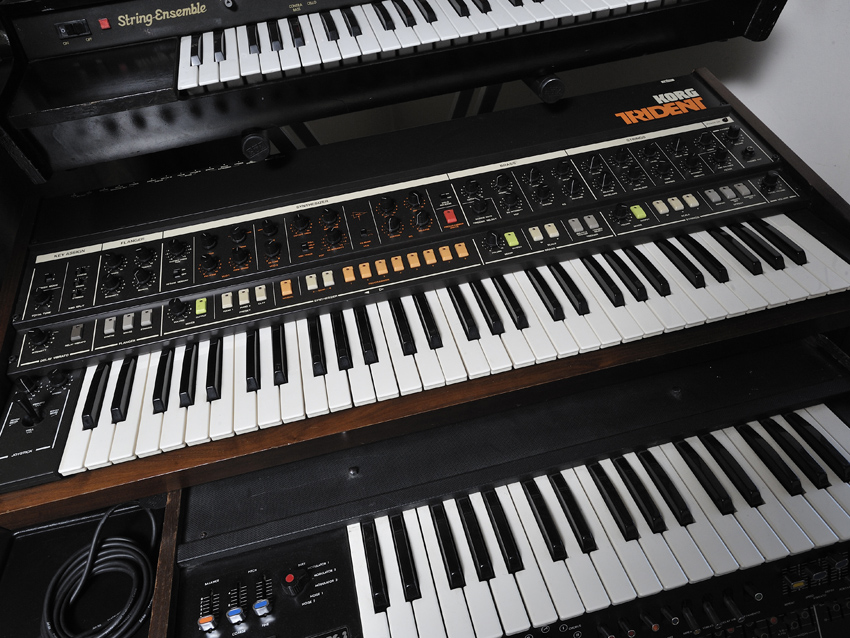
Korg Trident
Another French house staple, the Trident boasts Synthesizer, Brass and Strings sections.
“I bought it initially because it was a cheap but really good synth,” Fred tells us. “It always reminds me of the Scott Grooves Mothership Reconnection Daft Punk mix with the flanged, synth-string sound.”

Univox Minikorg
An impulse buy, but the MiniKorg (middle) has become an intrinsic part of the Falke setup.
“I bought this one because I saw it on the cover of this Japanese record I own, but I really fell in love with it,” Fred enthuses. “I even bought another because I use it all the time for everything from effects and sweeps to bass and leads.”
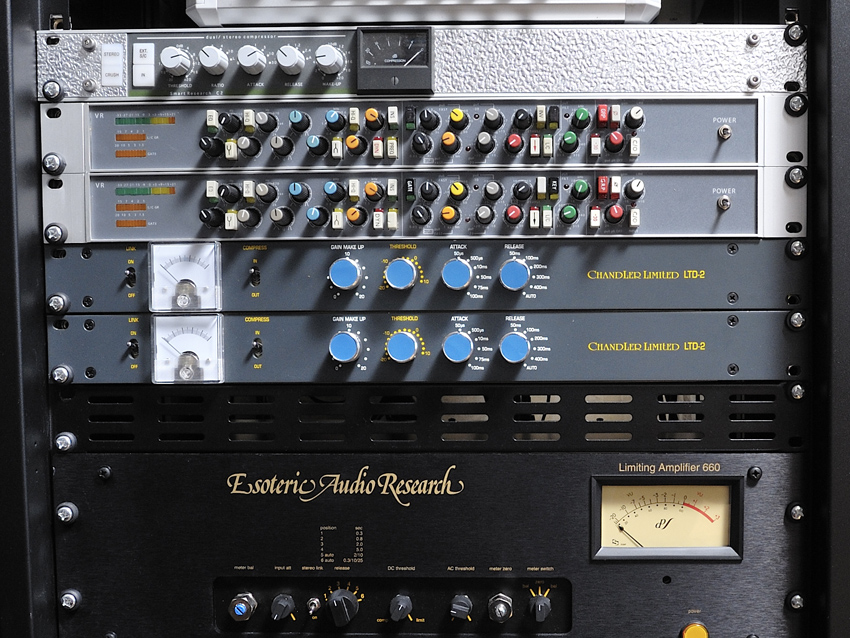
The rack
A couple of key pieces here; firstly, the Smart Research Mono/Stereo Compressor (top), which, according to Fred, “provides that classic radio glue”.
Below this you’ll see racked Neve VR channel strips: “These have been racked up really well, because all of the writing is actually the right way up. Usually with these racked channel strips you struggle to read settings,” explains Fred. “They have a really special sound and I love it!”
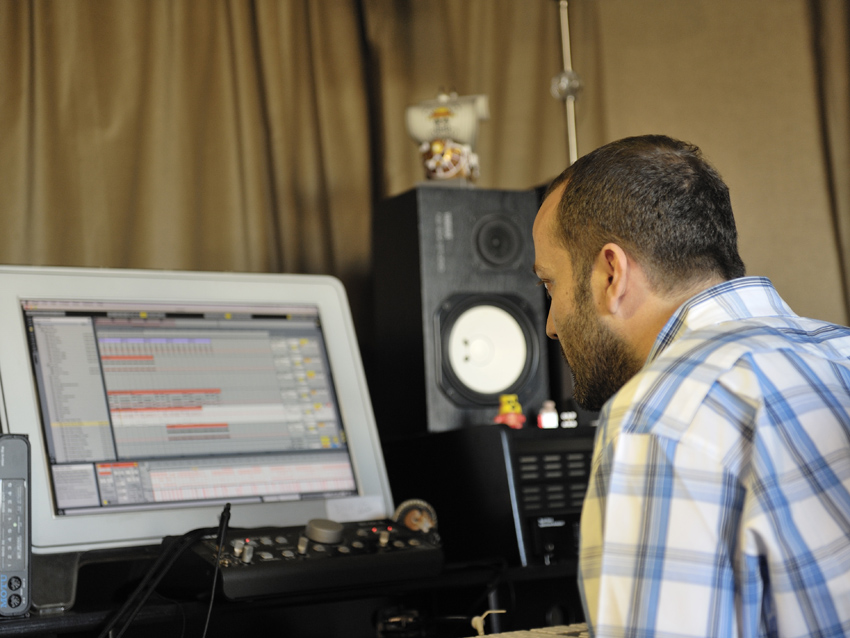
Ableton Live
Fred has used Logic in the past, but when it comes to a DAW, it’s pretty much Live all the way for him these days.
“I’m in Ableton now and I handle the software very fast so I’m sticking with it. Ideas are so quick to get down. I think at the beginning I was into only Logic, then I got Ableton and used that alongside Logic, but now I’m mainly Ableton.”
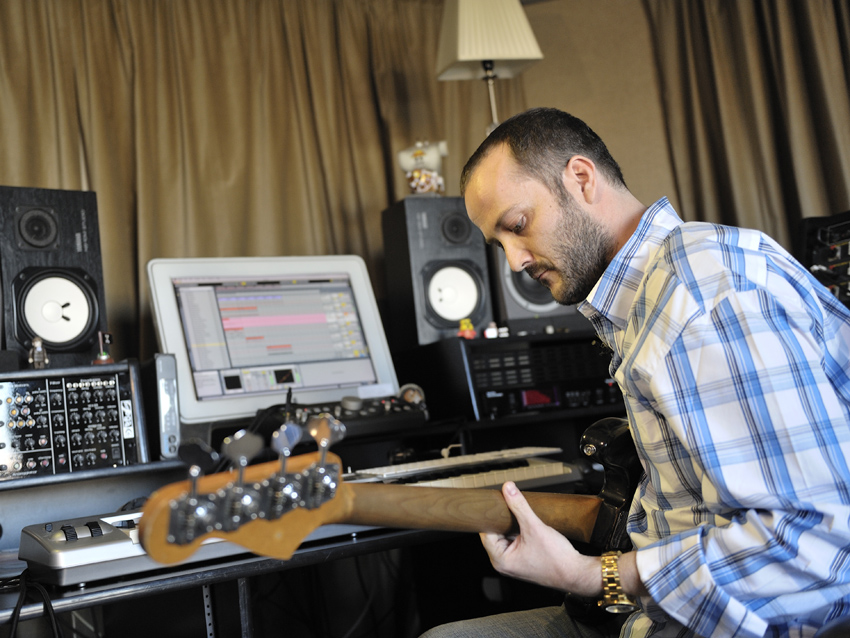
Bass
Fred may be well-known as a producer these days, but he began his career as a bass player, becoming something of a jazz maestro. This, he feels, gave him a strong musical grounding.
“Jazz is a one of those things you have to do when you’re learning your instruments, because you learn techniques and lessons about harmony beyond everything else. When you do it, you get the keys to the door that opens up many more things in music - suddenly you are able to do anything with your instrument.”
Liked this? Now read: Studios of the pros: stars' recording setups in pictures
Future Music is the number one magazine for today's producers. Packed with technique and technology we'll help you make great new music. All-access artist interviews, in-depth gear reviews, essential production tutorials and much more. Every marvellous monthly edition features reliable reviews of the latest and greatest hardware and software technology and techniques, unparalleled advice, in-depth interviews, sensational free samples and so much more to improve the experience and outcome of your music-making.


